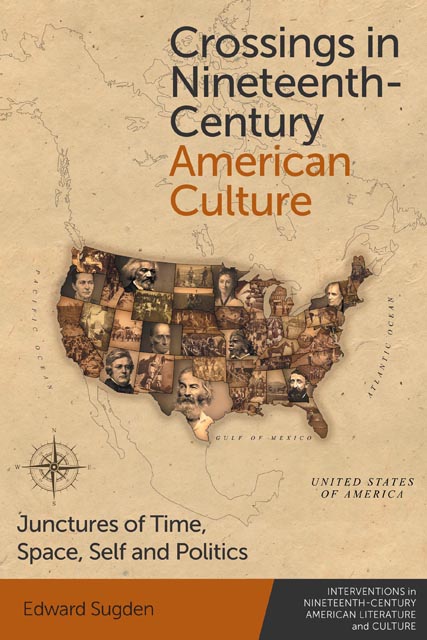Introduction
Published online by Cambridge University Press: 26 November 2022
Summary
‘I can't tell what's my name, or who I am!’ said Rip van Winkle, having slept through the revolutionary rupture of 1776 (Irving 1820: 85).
‘I was conscious for a time of nothing but existence,’ said Edgar Huntly, after waking up in a cave without a subjectivity to give definition to the allencompassing darkness around him (Brown [1799] 1988: 152).
‘I become a transparent eye-ball; I am nothing,’ said Ralph Waldo Emerson, rapt and wraith-like in the midst of nature (Emerson 1836: 13).
‘I am no man, no woman, nothing,’ said Laurence – or is it Laurent? – in Julia Ward Howe's The Hermaphrodite, surveying the simple fact of their existence (Howe 2004: 22).
This, here, is the narrative of my life, said Frederick Douglass, using a surname that was not his own, appending the legal and ontological non-being of ‘an American slave’ to it, next to a portrait in which his torso dissolves almost into invisibility (Douglass 1845).
‘I am a citizen of somewhere else,’ said Nathaniel Hawthorne after being ingloriously chucked out of his Custom House gig and into the writing of The Scarlet Letter (Hawthorne 1851: 51).
‘Call me Ishmael,’ said someone who may or may not be named Ishmael, in a year that is never directly stated (Melville [1851] 2001: 3).
‘I’m Nobody! Who are you?’ said Emily Dickinson, polemically advising against being ‘Somebody’ on a piece of now speculatively dated paper (Dickinson [1861] 1999: 116).
‘Who are we? Where are we?’ said Thoreau, in a moment of visionary dissolution, as he stood on top of Ktaadn demanding ‘contact’, crying out, on the page, from beyond the grave (Thoreau [1864] 2004: 71).
‘And now tell me,’ said Cassandra, in the midst of an identity crisis in The Morgesons, ‘what am I?’ (Stoddard [1862] 1984: 226).
‘I insist upon knowing where I am,’ said Julian West, disoriented timetraveller, not knowing where or when he was, upon waking in the year 2000 in Edward Bellamy's Looking Backward (Bellamy 1889: 27).
- Type
- Chapter
- Information
- Crossings in Nineteenth-Century American CultureJunctures of Time, Space, Self and Politics, pp. 1 - 16Publisher: Edinburgh University PressPrint publication year: 2022

